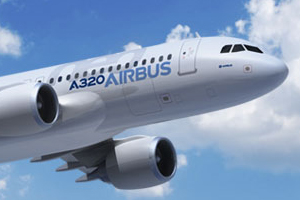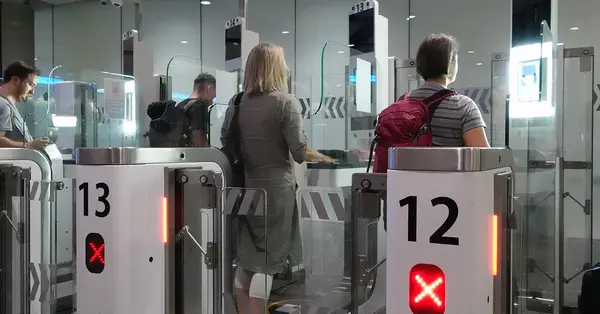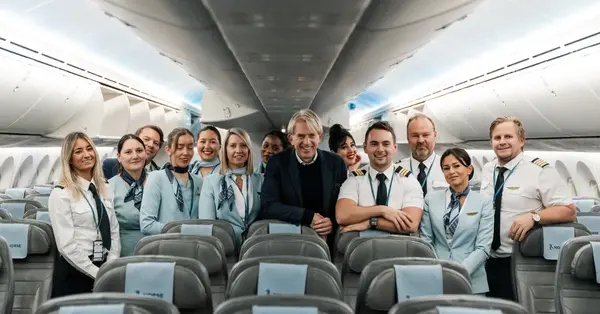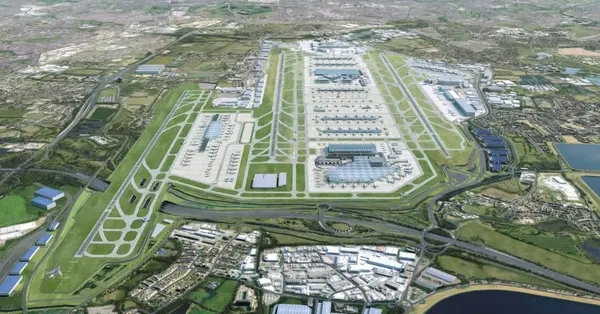You are viewing 1 of your 2 free articles
Airbus warning highlights continuing aircraft delivery delays
Airbus highlighted the continuing delays in aircraft deliveries which is restricting airline capacity and inflating fare prices when it re-forecast its production schedule last week.
The manufacturer revealed it would fall 30 short of its target to deliver 800 commercial aircraft this year and not reach its goal of producing 75 Airbus A320neos a month until 2027 – a year later than previously forecast.
The company blamed global supply chain issue, but principally delays at engine manufacturers Pratt & Whitney and CFM International.
More: Delta orders 20 Airbus aircraft to help international expansion
Airbus targets 800 commercial aircraft deliveries in 2024
The A320 is the workhorse of European airlines’ short-haul fleets and the ‘neo’ is the more fuel efficient ‘new engine option’ of the aircraft.
Airbus is currently averaging deliveries of fewer than 50 aircraft a month.
Chief executive Guillaume Faury blamed “persistent, specific supply chain issues, mainly in engines, aerostructures and cabin equipment” and described the shortage of engines as a “significant issue”.
He said: “It is a situation we were not expecting.”
Faury suggested cabin parts are also in short supply as airlines refurbish old aircraft because of the delays in deliveries. He warned last month that supply chain constraints could last two to three years. Airbus also revised down its profit guidance.
The company said its latest delivery forecasts “assume no additional disruptions”.
Airbus also revised down its profit guidance from €7 billion to €5.5 billion after incurring a €900 million ‘charge’ in its space division in the first half of the year.
Aviation analysts described the Airbus warning as a “shock”, suggested the revised production target would be “challenging”, and said passengers should “expect unprecedented fare increases to continue”.
Problems with the Pratt & Whitney GTF engine on the A320 neo has led to aircraft already in service being grounded for up to 450 days apiece. Wizz Air has been among the worst hit carriers, with up to 50 aircraft grounded in May, but as many as 650 Airbus A320s could be grounded in total.
The problems at rival Boeing have been well-publicised, with production of the Boeing 737 Max 9 curbed after a mid-exit door plug on an Alaska Airlines aircraft blew out in mid-flight in January.
Delta Air Lines chief executive Ed Bastian has warned the issues are “causing costs to go up.”
Speaking in April, he said: “Everybody in the engine world has challenges, not just on the original build but on the parts and repair side.
“All the suppliers in our industry lost a tremendous amount of experience due to the pandemic and have taken time to get that back.”
Iata director general Willie Walsh called in May for “urgent progress to resolve the supply chain issues”.
Carriers are estimated to have received 20% fewer new aircraft this summer than they expected and Ryanair chief executive Michael O’Leary highlighted “constraints in the supply chain” in May when he forecast: “Capacity constraints for the next two to three summers [mean] fares will rise over the next two to three years.”
The delays have inflated aircraft leasing rates and led carriers to operate older aircraft, using more fuel and requiring more maintenance.
In a separate development, Airbus reported its potential takeover of part of US-based fuselage and wing maker Spirit AeroSystems on Monday.
Spirit, formerly part of Boeing, is at the centre of the fall-out over the 737 Max incident and will be partially re-absorbed by Boeing following the announcement of a $4.7 billion deal this week.
It supplies parts for the Airbus A220 and A350 and has plants in Belfast and France as well as the US.
The Airbus-Spirit deal would see a $559-million payment to Airbus for taking over the production plants which supply it.


















